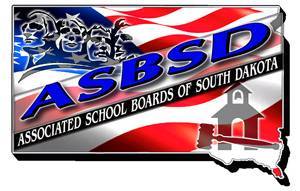The right for taxpayers to review who was donating would be tax dollars to a private school scholarship program was denied on Wednesday.
On a 10-5 vote, House Education members defeated House Bill 1125, which permits transparency for the public to see certain information relating to the partners in education tax credit program.
“We have no idea how much money is actually being put into the program,” Rep. Herman Otten said. “I contend there should be full disclosure.”
That disclosure would be from insurance companies contributing to the Partners in Education Tax Credit Program, which as established last year through Senate Bill 159 and allows the donating companies to remain anonymous.
The program permits up to $2 million of would be insurance company premium and annuity tax dollars to supply scholarships to eligible students to attend private schools. No information related to the student or their family receiving the scholarship dollars would be released.
“If you divert $2 million of public funds to private scholarships…shouldn’t the public know where that money is going?” ASBSD Executive Director Wade Pogany asked.
ASBSD supported adding transparency to the program through the release of information on those companies diverting tax dollars to contribute to the program.
“The donor confidentiality is really a key piece of the program,” Former Senator, and supporter of the program, Phyllis Heinerman testified via phone.
As Pogany pointed out, however, the contributions to the program are not in fact donations from just any donor.
“These are tax obligations,” Pogany said. “Tax obligations are not donations.”
Matthew McCaulley, a lobbyist testifying in favor of the bill, argued the dollars are in fact private and revealing the companies who have donated was a “dangerous step.”
“These are private dollars going to a private 501c,” McCaulley said. “These dollars are not going through the government.”
Indeed, the dollars contributed to the program are not going through the program, but as Rep. Craig Tieszen noted, it’s because they’ve been diverted before reaching government.
“This is private money that’s on its path that’s headed to the government,” Rep. Tieszen said. “Before it becomes public money it has been diverted.”
Not being able to confidentially divert the dollars to the program could prove a hindrance to the program, according to opponents.
Heineman said adding transparency had the “potential of intimidating” companies considering a contribution or families wishing to apply.
“We’re removing that choice of disclosure,” Rep. Sean McPherson said. “This bill reads as a bullying bill.”
The bill was less about bullying and more about inserting transparency for Rep. Larry Zikmund.
“The problem is not that the program is not good. The problem arises with the transparency,” Rep. Zikmund said. “I just think that those insurance companies need to show that transparency.”
Transparency Rep. Otten felt was owed to the taxpayers.
“If we’re going to have (the program) out there, it should be transparent,” Rep. Otten said. “I want to tell you they’re not private funds. It’s not a private donation. They are tax payer dollars.”
For updates from legislative session, check out the ASBSD Blog, Twitter feed and Bill Tracker page.
